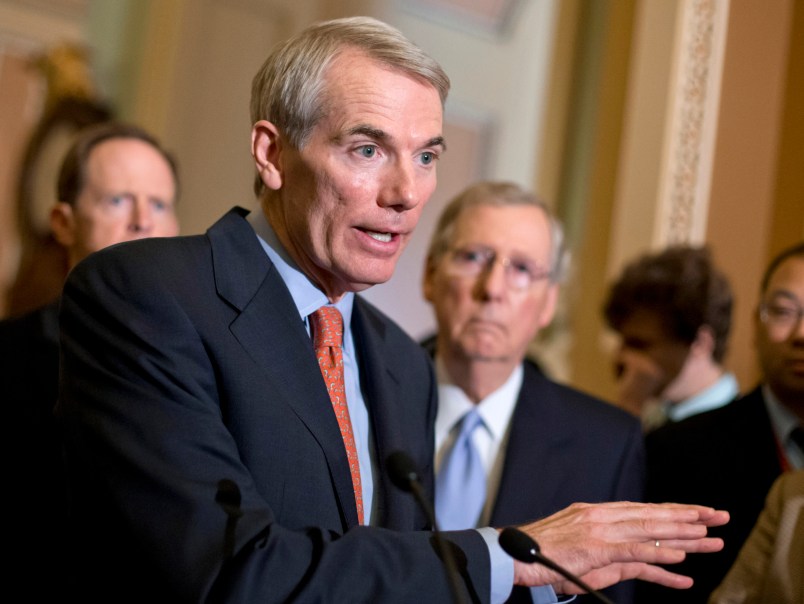Senators are nearing a bipartisan agreement to revive unemployment benefits for 11 months and fully pay for them. But it isn’t yet finalized and it remains unclear that the deal will have 60 votes to ensure passage.
The emerging deal, according to multiple senior aides familiar with the negotiations, would extend the jobless compensation through mid-November. The discussions are happening primarily between Sens. Rob Portman (R-OH), Jack Reed (D-RI) and Majority Leader Harry Reid (D-NV).
“I’m cautiously optimistic that in the next few hours, we can maybe work out something for a long-term solution of this issue – long-term being more than three months,” Reid told reporters on Thursday. “But Americans shouldn’t have to suffer while debate takes place here in Washington. We should get this done for them.”
One of the offsets would extend the mandatory automatic cuts under the sequester, which largely target Medicare providers, for one year, saving $17 billion. (It would not touch the discretionary portion of the sequester.) The same sequester extension was enacted under the Ryan-Murray budget deal for two years, and this deal would extend it for one extra year, through 2024.
“This policy was in the Ryan-Murray agreement, which Republicans voted for, so they’re already on the record saying this is real deficit reduction,” said one Democratic leadership aide.
Another offset would bar people from simultaneously receiving unemployment benefits and Social Security Disability Insurance. The theory is that the Social Security disability insurance is for individuals who cannot work, while unemployment benefits are restricted to people who are trying to find a job. So people should not be receiving both, even though some are. Supporters of this idea argue that cracking down on this would save the federal government money.
Senate negotiators hope to announce an agreement on Thursday and begin to move forward with it.
But even if a deal is reached, there is skepticism within Democratic leadership that there’ll be 60 senators to break an inevitable filibuster. Even if Portman is on board, Sen. Dean Heller (R-NV) — the cosponsor of a three-month unemployment extension that isn’t paid for — would have to agree. And some in leadership wonder if either of them can deliver substantial Republican votes. There’s also the question of whether all 55 Democrats would remain united behind the proposal, considering the offsets.
If the Senate passes such a bill, there remains the tougher task of getting it through the House. But Speaker John Boehner (R-OH) would face pressure to act.
The emergency program for the long-term unemployed lapsed on Dec. 28 for some 1.3 million Americans. First passed in 2008, it covers Americans looking for work for up to 99 weeks. Without that, that number falls to 26 weeks for most.






